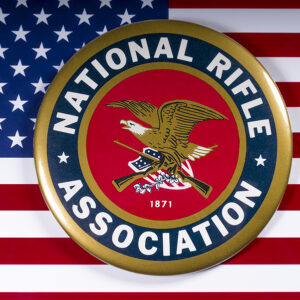New Hampshire Attorney General John M. Formella is one of 18 across the U.S. who have filed an amicus brief with the U.S. Supreme Court supporting the National Rifle Association (NRA) in its legal fight with New York state.
At issue are public statements made by Maria Vullo, the former superintendent of New York’s Department of Financial Services (DFS), that appeared to suggest banks and other firms doing business with gun rights groups like the NRA should rethink that decision.
In 2018, for example, she said banks and insurers should consider the “reputational risks” of commerce with an organization like the NRA. Vullo, whose department has state oversight over financial businesses, commented not long after the mass shooting at Marjory Stoneman Douglas High School in Parkland, Fl.
The Second Circuit court threw out the NRA’s free speech claims, and the organization is appealing that decision.
“I am urging the U.S. Supreme Court to take action because this decision by the U.S. Circuit Court of Appeals for the Second Circuit could erode Granite Staters’ First Amendment safeguards for private political speech,” Formella said. “The decision also paves the way for the government to suppress speech by second amendment advocates or other speech that the government does not like or agree with, based solely on the content of that speech.”
According to the brief from Formella and the other attorneys general, “the Second Circuit’s decision gives government officials license to financially cripple their political opponents, or otherwise stifle their protected speech— whether those rivals advocate for school choice, abortion rights, religious liberty, environmental protections, or any other politically salient issue. The ACLU argues that the decision gives ‘[p]ublic officials … a readymade playbook for abusing their regulatory power to harm disfavored advocacy groups without triggering judicial scrutiny.’ This Court should grant the petition and reverse.”
This isn’t the first national gun rights fight Formella has jumped into. Late last year, he signed a letter with other GOP attorneys general to major shipping companies like UPS and FedEx challenging new shipping policies for firearms. The companies wanted to require additional information about these shipments that could allow the companies to create databases with specific information about who had made gun-related purchases.
Are major shippers like FedEx and UPS tracking gun sales and giving that information to the Biden administration? That is what a group of attorneys general, including Formella, want to find out.
Formella signed off on two letters from Montana Attorney General Austin Knudsen (R) to FedEx President and CEO Raj Subramaniam and UPS CEO Carol B. Tomé regarding new policies which allow the companies to track sales of firearms “with unprecedented specificity.”
Federal firearm license (FFL) holders across the country are reporting the two shipping companies now require them to create three separate shipping accounts: one for firearms, one for firearm parts, and one for all other firearm-related products, the attorneys general wrote. “Under this three-tier system, gun sellers cannot mix and match shipments, which reveals to your company whether they are shipping a gun, gun part, or a gun-related item.
“These demands, in tandem, allow FedEx to create a database of American gun purchasers and determine exactly what items they purchased,” the attorneys general wrote. They also want to know if the companies plan to gather and share data from these FFL holders with the Bureau of Alcohol, Tobacco, Firearms, and Explosives (ATF) or any other federal agency.
And Formella is also part of the fight against a new Biden administration policy allowing managers of private sector retirement funds to consider ESG (Environment, Social. and Governance) considerations as they manage retirees’ money rather than a mandate to try and maximize returns. One industry most often targeted by ESG investing is gun manufacturing. That is of particular interest in New Hampshire, which, according to the National Shooting Sports Foundation, ranks first in the nation in terms of total gun manufacturing jobs and economic output per capita.
In the NRA vs. New York case, the attorneys general argue the lower court’s decision paves the way for the government to suppress speech it doesn’t agree with or doesn’t like.
“If the Second Circuit’s decision is left standing, it’s not difficult to imagine government officials employing similar tactics to stifle disfavored speakers. Whether the method of choice is to target financial institutions that advocacy groups depend on to engage in fulsome political advocacy…or simply to target private organizations that host events for such groups, the path forward is clearly marked,” the attorneys general wrote. “And if this Court doesn’t intervene to shut down that path, ‘where would such official bullying end?’”





